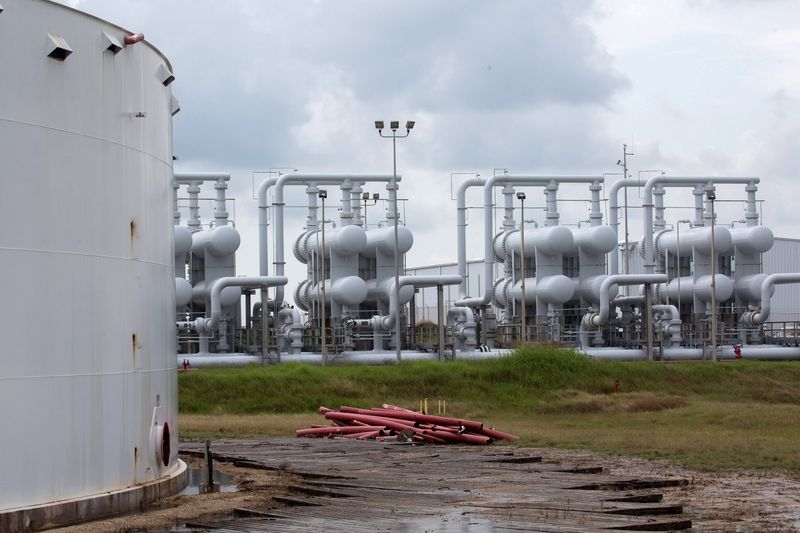By Laila Kearney and Timothy Gardner
NEW YORK/WASHINGTON (Reuters) - The Trump administration plans to lease out space for energy companies to store oil in the nation's Strategic Petroleum Reserve, after a previous effort to buy millions of barrels for the emergency stockpile was cancelled over a lack of funding, according to two people briefed on the matter.
The new plan could help the United States deal with a growing glut of crude oil that risks overwhelming commercial storage tanks and sending world energy prices deeper into a tailspin as the coronavirus pandemic slashes demand for fuel. It could be announced as soon as Wednesday, the sources said.
The plan is a change of tack from the initial scheme, which would have had the Department of Energy (DOE) purchase crude from domestic drillers using federal funds.
U.S. President Donald Trump ordered the DOE on March 13 to fill the reserve "to the top" to help oil producers suffering from the global oil price drop, and the initial solicitation asked for supply only from U.S. companies with fewer than 5,000 employees.
But Congress did not approve funds for the buys, forcing the Energy Department last week to cancel the proposal.
The revised plan would help traders and others as they try to ride out a precipitous drop in the price of oil by storing crude for sale later once the crisis is over.
The country's main commercial storage hub in Cushing, Oklahoma is quickly filling up.
The Strategic Petroleum Reserve has 77 million barrels of free capacity, a little less than the country uses in four days. It currently holds about 635 million barrels of oil in salt caverns on the Texas and Louisiana coasts.
It was not clear if the DOE has ever before leased space in the caverns to private companies.
"We appreciate any actions the administration is taking to alleviate the oversupply flooding the market and allow U.S. independent producers to continue to operate," said Anne Bradbury, the CEO of AXPC, an industry group representing independent oil and gas companies.
"We encourage Congress to work with DOE to ensure they have the resources needed for SPR flexibilities, to address the oversupply issues we are facing," Bradbury said.
The DOE did not immediately respond to a request for comment.
The coronavirus pandemic has crushed global fuel demand as governments keen to slow the spread of the respiratory disease seek to restrict the movement of roughly 3 billion people across the world.
A price war between Saudi Arabia and Russia that erupted earlier this month has exacerbated the crisis by flooding the market with crude.
U.S. oil futures lost 54% in March, the biggest monthly percentage decline in the benchmark's history. The country's flagship physical crude oil grade traded at about $10 a barrel, the lowest in more than two decades, earlier this week.

In response, traders in the United States and elsewhere have scrambled to find to space to hold the devalued barrels while waiting out the storm.